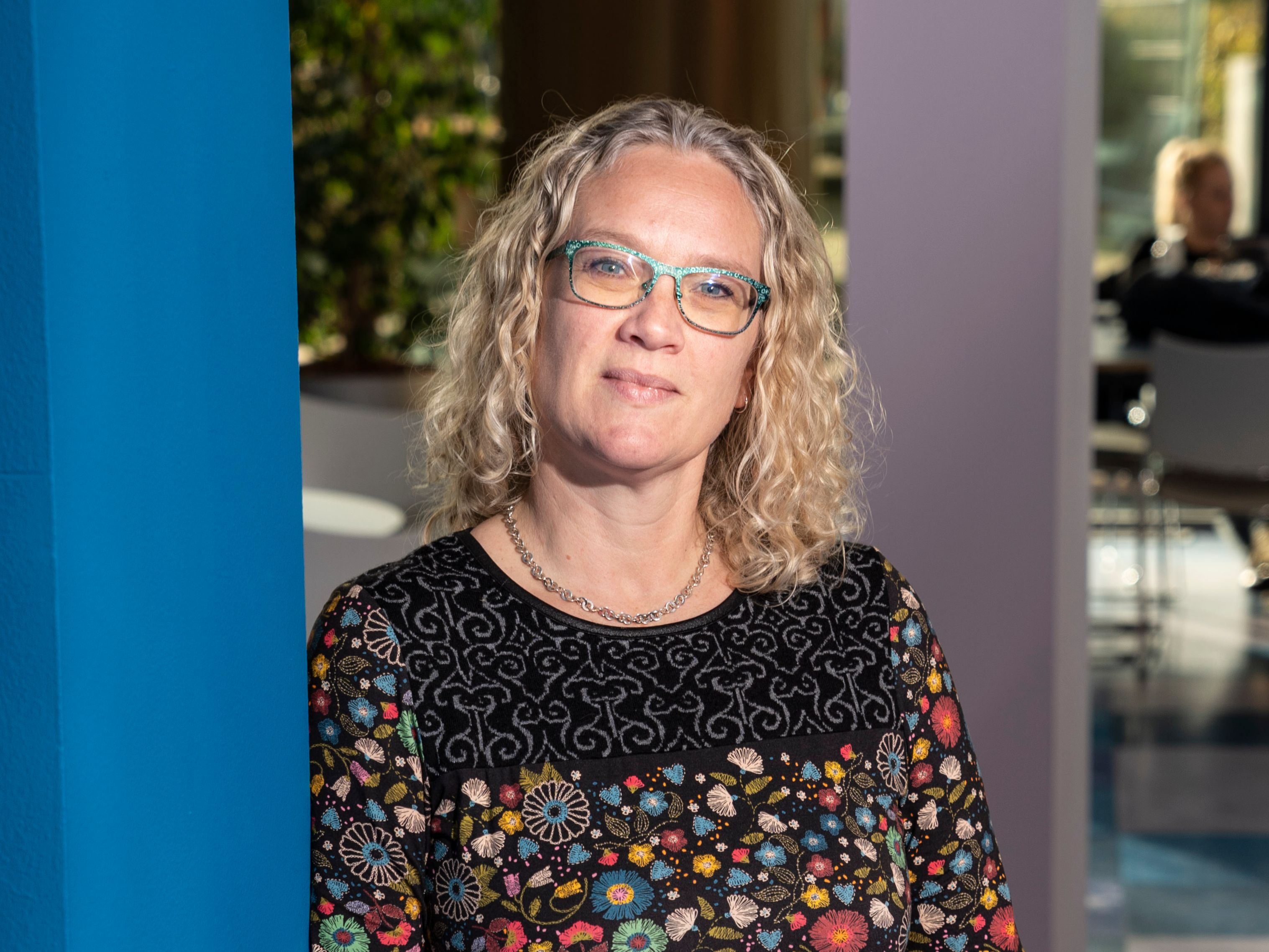Rian Drogendijk: Nurturer of talented researchers, with a personal touch
| Date: | 16 March 2020 |

If the Faculty of Economics and Business were a professional football club (FC FEB), Rian Drogendijk would be the head of the scouting and youth division. The Director of Graduate Studies is closely involved in selecting students for the Research Master’s programme and the PhD programme. She feels responsible for the well-being of all talented researchers. “We expect a lot from everyone who comes here. But not everyone can be a superstar, and some PhD students run into unexpected challenges. So we need to tackle those issues head on.”
“A lot of talking and a lot of meetings”, Rian Drogendijk answers with a smile when asked what a Director of Graduate Studies does. “For policy matters, I often consult with my counterparts at other faculties, with FEB’s scientific committee and for the Research Master with the other Master programme directors. And, of course, I work closely with both Graduate School coordinators; Tristan Kohl for the Research Master and Kristian Peters for the PhD programme, and with other colleagues at SOM. But one of my main tasks is selecting students for the Research Master’s programme as well as new PhD students. I’m involved in all of the recruitment committees.”
Not always easy
There are currently around 40 students enrolled in the Research Master’s programme; about 20 students start each academic year. “We hope to attract about 25 students every year, with a good spread across the three profiles of Business Analytics and Econometrics, Business Research, and Economics. That’s not always easy within our discipline. Ultimately, our Bachelor’s and Master’s students tend to be more interested in finding a job in the business world or want to work as an economist or analyst, which is understandable. But I’m convinced that many more students from our Faculty have what it takes to do the tough Research Master’s programme.”
Diversity
FEB welcomes about 30 new PhD students every year. Drogendijk attends all the interviews for vacant positions. When searching for new talent, diversity is an important factor for her. “Both in terms of the male/female ratio and distribution among nationalities, things are now on the right track. And it has to stay that way, of course. Also because we want to have diversity in our teaching staff. It’s absolutely not about selecting people to comply with certain checklists, but rather the other way around: I want to make sure that people are seen, so that we don’t fail to recognize talent because of biases.”
The Board of the University is committed to increasing the number of PhD students at the University. Drogendijk wants to ensure that quantity at the FEB does not take precedence over quality. “It’s quite difficult to find the right people for some positions. Sometimes, we need a second or third round of interviews for a position. In our discipline, it’s not easy to find a large group of suitable candidates. We don’t turn people away if we think: we really want to have them.”
Proper guidance and support
The successful candidates should be able to count on proper guidance and support, emphasizes Drogendijk. “We have high expectations of everyone who comes here as a PhD student. However, there are of course differences in the quality of PhD theses. This may be down to individual skills and abilities, problems with data collection, bad luck or events that are just part and parcel of young people’s lives. And that’s good, too. It’s good to have these differences in people and in qualities. I think we need to keep a close eye on that. It is unlikely that all PhD projects lead to world-class publications, and supervisors should always consider the interests of the PhD student.”
A personal touch
Drogendijk makes one thing very clear: having a personal touch is hugely important. All the more so because of the worrying results of the University-wide well-being study carried out among PhD students. “A too large percentage of them have several symptoms that point towards burnout. I can believe that. Also at FEB, we sometimes have PhD students who don’t feel at ease or who fall off the bandwagon. We need to tackle those issues head on. The results compel us to provide better guidance and more support.”
Drogendijk can draw on the experience that she gained in the same position with her previous employer, Uppsala University in Sweden. “I’m already a bit of an old hand at this role. And I love what I do. A great part of this job is that I now have a much better idea of what is happening throughout the whole building. I really like that. I randomly bump into people who have the same research interests. That’s inspiring.”
For more information, see Rian Drogendijk's profile page.

